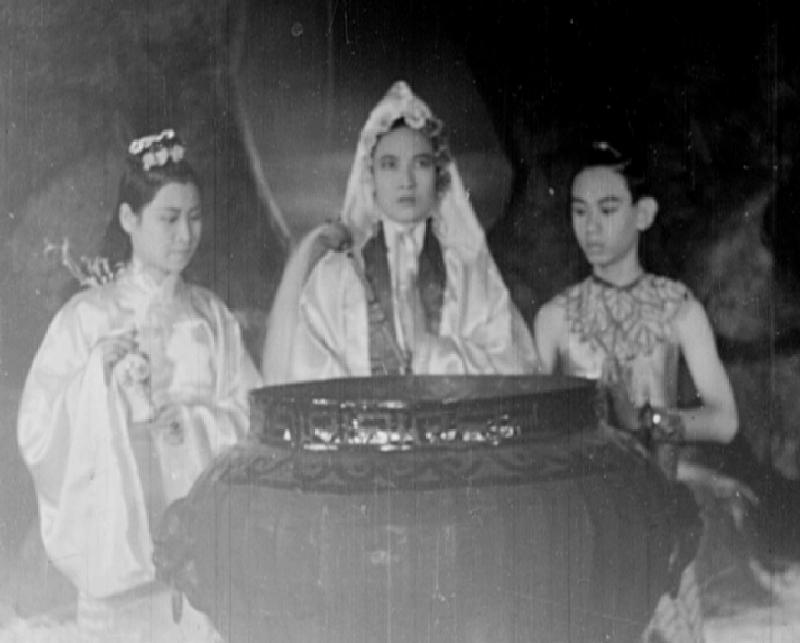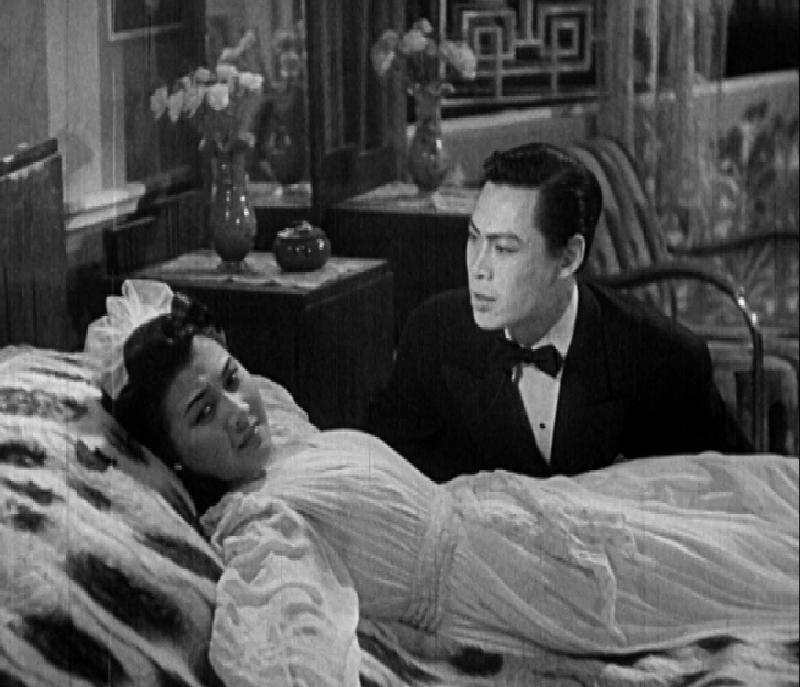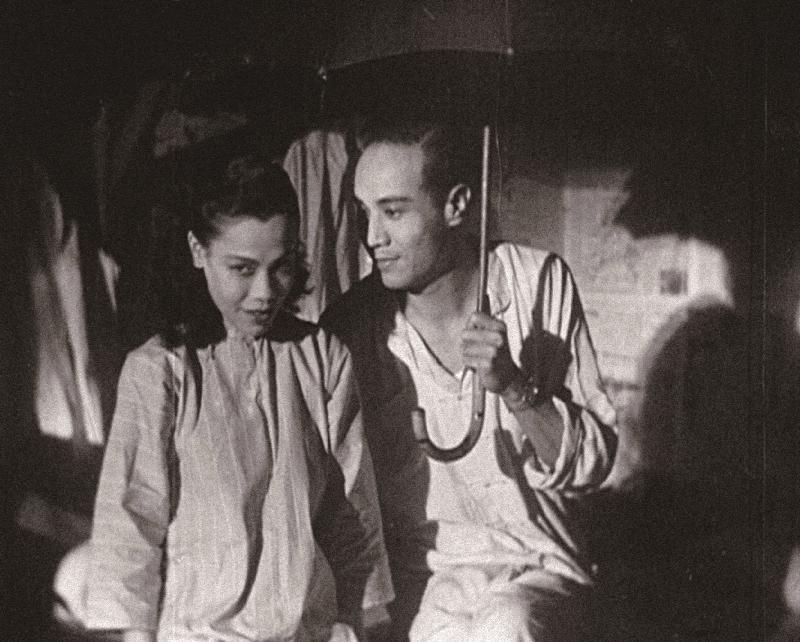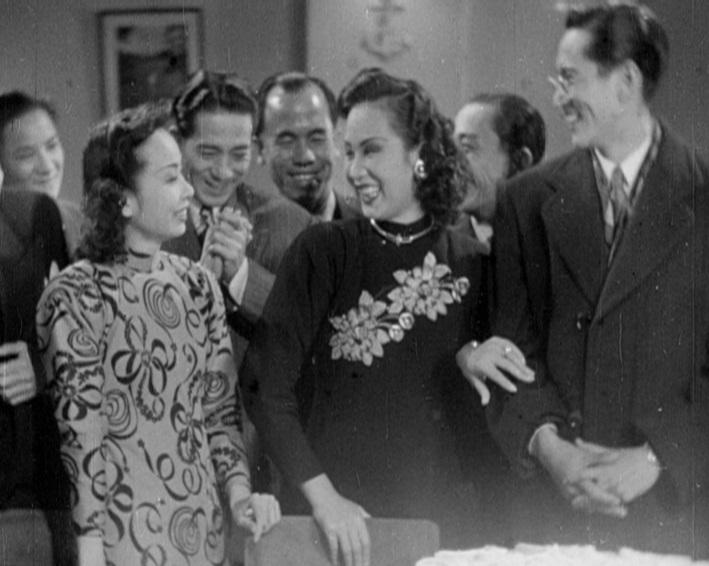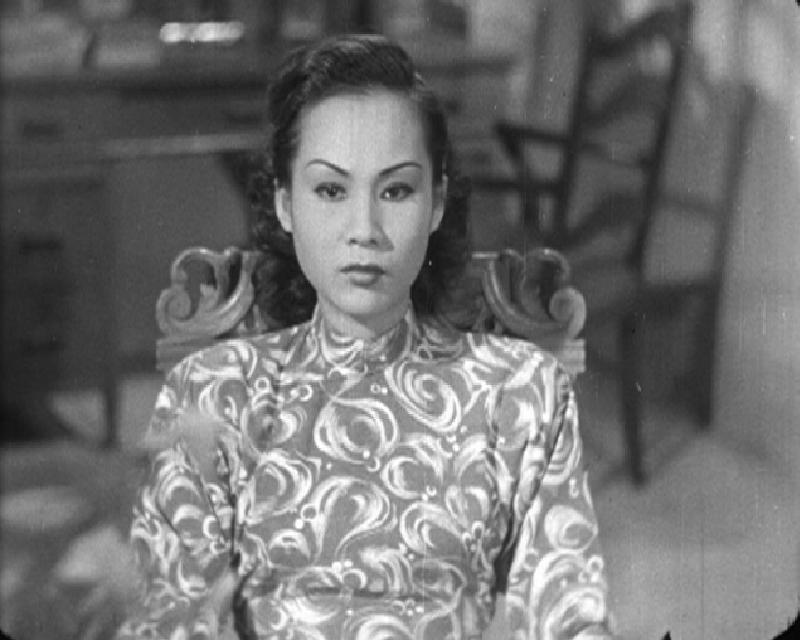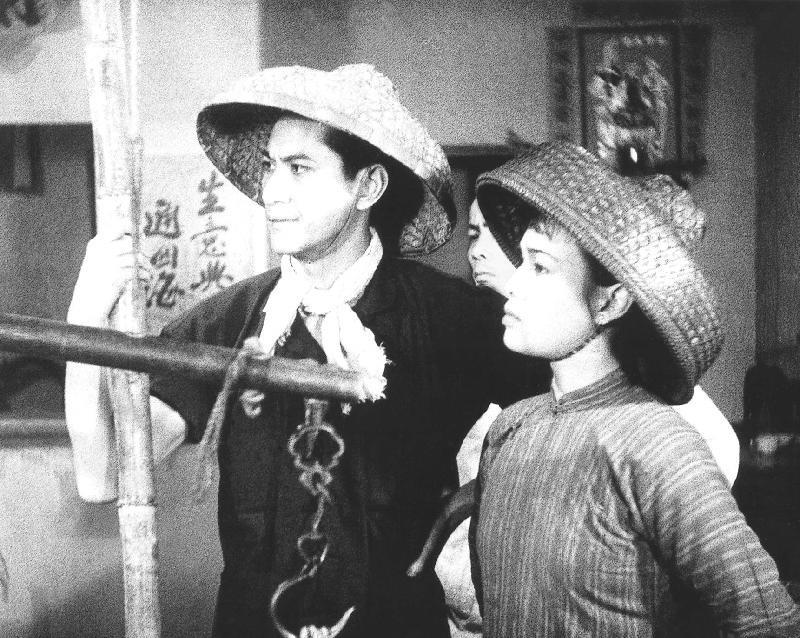The Hong Kong Film Archive (HKFA) of the Leisure and Cultural Services Department will present the fourth instalment of the "Early Cinematic Treasures Rediscovered" series from March 23 to May 19 at the HKFA Cinema. Twenty-five rare archival titles of Hong Kong early productions will be screened including six long-lost cinematic works, namely "The Goddess Helps the Bridge Builder" (1940), "Changing Hearts" (1943), "Cuckoo's Spirit in March" (1947), "Long Live the Wife" (1948), "Never Too Late to Meet" (1949) and "Fishermen's Song of the South Sea" (1950). Post-screening talks will be arranged for some of the screenings.
In the 1930s, filmmakers started to invite opera practitioners to perform onscreen after seeing the big box office success of "The White Gold Dragon" (1933), a Cantonese film (with sound) involving producer Runje Shaw and the then towering figure of Cantonese opera, Sit Kok-sin. Later, after the negative of "The White Gold Dragon" was destroyed in a fire, Shaw teamed up with Sit in the sequel "The White Gold Dragon, Part Two" (1937), enabling Sit to play the romantic and charming and rich heir Pak Kam-lung again and to excel in his signature artistry. "The Blood-stained Peach Blossom Fan" (1940) is the last and only existing work of the veteran scriptwriter and composer of Cantonese opera, Mak Siu-ha, and which also documents an invaluable scene of northern school sword dancing by Cheang Mang-ha. Another Cantonese opera master, Ma Si-tsang, used his operatic masterpiece’s title for the film "Bitter Phoenix, Sorrowful Oriole' (1947), in which he flaunted his signature "beggar" singing style to perform an excerpt of the original play. "Cuckoo's Spirit in March" is an adaptation of the Cantonese opera written by popular playwright Lee Siu-wan. Though the version to be shown is incomplete, it captures an early yet moving performance on screen by Yu Lai-zhen. During the Second World War, the founder of the Grandview Film Company, Joseph Sunn Jue continued to make films in the US by collaborating with Cantonese opera practitioners who fled overseas during the war. Shot in California, "White Powder and Neon Lights" (1947) is the first 16mm colour Cantonese film to feature opera performer Wong Hok-sing, who is also the director and scriptwriter of the film.
Films based on folklore and ghost stories, which were popular in the 30s and 40s, demonstrated the unlimited possibilities of constructing an unimaginable fantasy world for audiences. "The Ghost Catcher" (1939) is a hybrid of old and new horror films from both West and East, and which uses special effects like freeze-frame and step-printing to create a spectacular visual adventure. Based on a folktale, "The Goddess Helps the Bridge Builder" was filmed with extraordinary special effects, including a hand-drawn two-plus-minute animation illustrating the bridge's construction. "The Birth of Kiddy Stone" (1949), which blends elements of martial arts, musicals and fantasy, features a lively performance by Cantonese opera prodigy Yu Kai, and was a box office hit.
Literary adaptation has been a staple of film creation, among which those works adapted from down-to-earth novels were particularly well-received by audience in the 30s and 40s. Starring Cheung Wood-yau and Lo Ming, "The Rich House" (1942) was adapted from Lui Lun's novel "Clara", and showcases Hong Kong’s unique cosmopolitan blend of romance and westernisation. "The Evil Mind" (1947) depicts urban relationships and human degradation in a complicated plot derived from the novel by Ling Siu-sang. An adaptation of Yi Hung-sang’s serialised novel published in Sing Pao, "The Crazy Matchmaker" (1948), features wanton relationships between men and women fueled by lust and deception, uncovering the dark side of post-war society. Adapted from a popular novel by Mong Wan, "A Poor Lover's Tears" (1948) portrays Pak Yin as an unrestrained and materialistic woman.
During the war of resistance against Japanese aggression, Hong Kong filmmakers echoed aspects of "National Defence" campaign in the Mainland, producing patriotic films to show similar sentiments. Directed, scripted and acted in by Hou Yao, "Fortress of Flesh and Blood" (1938) depicts Hou's unwavering stance on resistance and also his disregard for cowardly behaviour. "Ten Thousand Li Ahead" (1941) is directed by Cai Chusheng, who co-founded the National Salvation Association of Cinema, and voices his decision to support his country. "Song of Retribution" (1941) describes in detail the Japanese soldiers' hatred of the war, transcending the "us versus them" duality commonly seen in national defence films. "Roar of the People" (1941) centres on the hardships endured by common people during wartime and is intercut with real footage from the war, increasing the anti-war sentiment of the film and imbuing it with genuine concern for the poor.
Largely influenced by Western ideologies and caught in a clash between old and new cultures, intellectuals in the 30s and 40s used cinema to vigorously expose injustices in society and reveal the ugliness of elites. The restored version of "Follow Your Dream" (1941) portrays a warm neighbourliness among refugees before the Japanese occupation and their quest to keep personal pride and courage intact, and is regarded as a leading Hong Kong left-wing film. Due to Hong Kong’s geographical location and the prevalence of realism in post-war films, the industry saw a minor surge of fishing village films at this time. Shot on location, "Fishing Village in the War" (1948) and "Fishermen's Song of the South Sea" tell of life in fishing villages and the oppression faced by fishermen. The Nanguo Film Company’s debut title, "Dawn Must Come" (1950), is a tragedy about farmers in Guangdong who are oppressed by treacherous and greedy landlords, touching the audience with a realist approach. "Old Memories of Canton" (1951) chronicles corruption in a government official's family in Guangzhou during the pre- and post-war period, through which director Lo Duen delivers an angry indictment against corrupt elites.
With feminism on the rise after the May Fourth Movement, filmmakers began to review the value of patriarchy in their works. "The Light of Women" (1937) follows a mother played by Lee Yi-nin who starts a new life with her daughter in the fight against gender oppression, while also reflecting on the lifelong battle for women to gain independence in a male-dominated society. "Changing Hearts" explores the institution of marriage and the power relationship between husband and wife in a light-hearted way, in which the female lead, Nancy Chan, seduces her husband in bed, suggesting the possibility of female domination. "Long Live the Wife" tells of a love triangle revolving around Pak Yin, Siu Yin Fei and Cheung Ying, which poses an acute challenge to male-centred social values and orthodox masculinity. "Never Too Late to Meet" centres on the issues raised by the system of concubinage in several families, effectively criticising the outdated concept of male privilege.
To complement the screenings, six seminars will be hosted by numerous film critics and researchers including Sam Ho, Lau Yam, Shu Kei, Dr Yau Ching, Dr Stephanie Ng, Law Kar, Lam Kee-to and Tsang Siu-wang. The seminars are entitled "The Art of Left-wing Cinema in Post-war Hong Kong" (March 30); "Sexuality and Gender in Early Cinema" (April 14); "Cantonese Opera Tangos with Movie" (April 20) ; "Fanfare and Controversy around Patriotic Films in the 1930s and 40s" (April 27); "The Adventure of Hong Kong Fantasy Film" (May 12) and "Between Money and Love: Adaptations of Early Hong Kong Novels" (May 18), which will be conducted at the Cinema of the HKFA in Cantonese with free admission.
"Ten Thousand Li Ahead" is in Mandarin and Cantonese, "Changing Hearts" and "Song of Retribution" are in Mandarin and all of the other films are in Cantonese. "The Rich House" and "Follow Your Dream" have Chinese and English subtitles; and the other films are without subtitles.
Tickets priced at $45 are now available at URBTIX (www.urbtix.hk). For credit card telephone bookings, please call 2111 5999. For programme details, please call 2739 2139 or visit www.filmarchive.gov.hk/en_US/web/hkfa/programmesandexhibitions/2019ect4/index.html.
